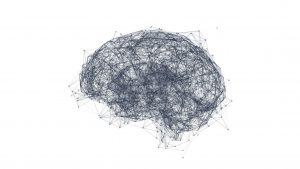When we talk about informatics, we tend to talk about it through the lens of health, as this is not only an area of specialty for us here at USF Health Morsani College of Medicine, but also one of the avenues where information science is having the greatest impact.
But informatics is a word that can apply to several different types of information science specialties and the study of how information flows in a given context. One such example is crisis informatics, or in other words, the study of how information is transmitted, received and used during times of crisis. And if the coronavirus outbreak has proven anything, it’s that modern-day tools for information sharing can be just as harmful as helpful in a pandemic.
The State of Crisis Informatics
It’s an interesting time for crisis informatics researchers. The central idea of their work is that people will use information and technology built for communication to share it in responding to disasters. Their focus then, is the construction of computational systems to support the collection of data for the analysis of social behaviors that effect the way that disaster warnings, response and recovery occur.
Social media certainly plays its role and while it can prove a useful tool in disseminating important information and making the public more aware of the present situation, it can also be used to spread misinformation, exaggerated facts and myths that do more harm than good.
A high-profile example of this came in the form of a tweet from the president advocating certain medications as a potential cure for the virus. As a result, an Arizona man and his wife went in search of the chemicals mentioned and found non-pharmaceutical versions of them in products not safe for ingestion. The man died after consumption, while his wife was hospitalized.
HYDROXYCHLOROQUINE & AZITHROMYCIN, taken together, have a real chance to be one of the biggest game changers in the history of medicine. The FDA has moved mountains – Thank You! Hopefully they will BOTH (H works better with A, International Journal of Antimicrobial Agents)…..
— Donald J. Trump (@realDonaldTrump) March 21, 2020
This led to people calling for the media to stop sharing commentary from the White House and left many with real doubts over what to believe and where reliable information comes from, if they didn’t already have those doubts.
It’s just one example of how public health efforts can be undermined by the way information spreads in 2020.
The current crisis led Tedros Adhanom Ghebreyesus, director-general of the World Health Organization (WHO), to note in a recent address that this situation is more than a pandemic, it’s also what he then dubbed an “infodemic.”
An Interdisciplinary Science
It’s here that crisis informatics intersects with other sciences that have implications for health, such as medicine, pharma, sociology and psychology. How information flows and is processed across these new, technology driven communication platforms begs questions that involve concepts like herd mentality, the sociology of disaster and psychology of rumor.
Researchers examining the use of things like social media during a time of crisis question whether a pure data science approach can be applied to the examination of information during a crisis. Analytics professionals are well trained in understanding the management and analysis of large volumes of data, but the variety of human behavioral factors at play here would limit them to providing high level insights without the help of social scientists to put things into perspective.
That said, the work of data analysts can produce the first questions that need to be asked about human behavior as a result of the way information flows during a crisis. An article published in Science Magazine notes that “large volumes of social media data alone will not reveal patterns of behavior, data must be scoped in ways that make it pertinent to a meaningful question, which usually triggers a cascade of new data collection steps and questions.”
Health informatics professionals and those who work in the relatively new field of healthcare analytics are asking themselves questions of equal complexity on a daily basis. Collaboration between these fields could prove fruitful for both as healthcare looks for new ways to engage patients in ways that patients want to be engaged and crisis managers look for new ways to manage the way information is consumed by the public.
“We’re trying to think about questions of how data and statistics are being used and debated in these conversations online, and what is the impact of that on public understanding and the way that people make decisions and take actions,” sociologist Emma Spiro told Science Insider.
Answering these questions may not influence care or health directly, but the decisions people make in a situation like the current one will no doubt be informed by the way we consume information and thus, have a knock on effect for health. As hospitals and care providers are inundated by new cases of the virus, informatics and data analytics are becoming increasingly important in understanding how to manage the crisis on every level.




